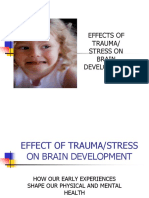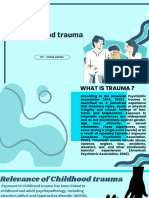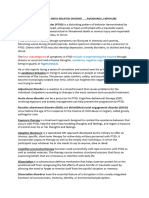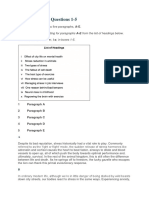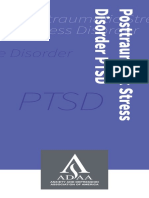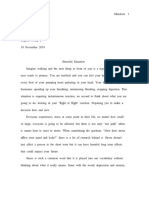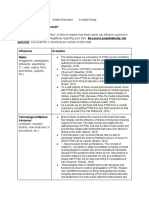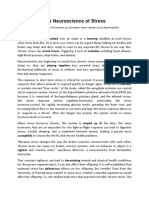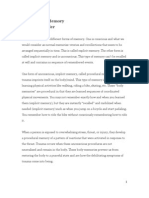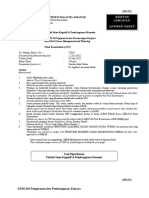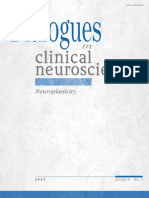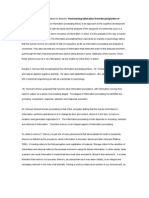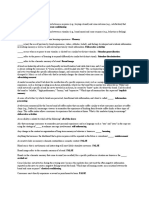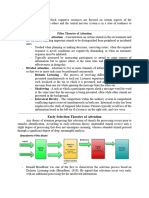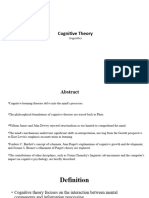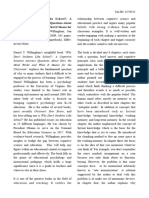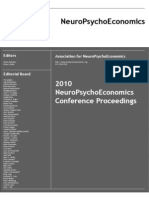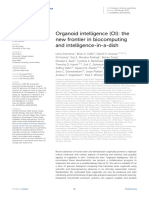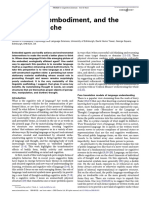0% found this document useful (0 votes)
102 views2 pagesCoping with Stress and Trauma
Stress and trauma can significantly impact the brain and memory. Chronic stress causes changes in key brain areas like the amygdala, hippocampus, and prefrontal cortex. It can reduce brain size and weight through atrophy and damage immune function. Both short and long-term memory can be impaired by stress. Post-traumatic stress disorder is caused by biological changes in brain areas involved in threat response. Repeated traumatic experiences can strongly influence neuronal connections and long-term memory formation. Learning coping mechanisms like exercise, sleep, social support and therapy can help minimize the effects of stress and trauma on brain and memory.
Uploaded by
Ignetheas ApoiCopyright
© © All Rights Reserved
We take content rights seriously. If you suspect this is your content, claim it here.
Available Formats
Download as DOCX, PDF, TXT or read online on Scribd
0% found this document useful (0 votes)
102 views2 pagesCoping with Stress and Trauma
Stress and trauma can significantly impact the brain and memory. Chronic stress causes changes in key brain areas like the amygdala, hippocampus, and prefrontal cortex. It can reduce brain size and weight through atrophy and damage immune function. Both short and long-term memory can be impaired by stress. Post-traumatic stress disorder is caused by biological changes in brain areas involved in threat response. Repeated traumatic experiences can strongly influence neuronal connections and long-term memory formation. Learning coping mechanisms like exercise, sleep, social support and therapy can help minimize the effects of stress and trauma on brain and memory.
Uploaded by
Ignetheas ApoiCopyright
© © All Rights Reserved
We take content rights seriously. If you suspect this is your content, claim it here.
Available Formats
Download as DOCX, PDF, TXT or read online on Scribd
/ 2


















